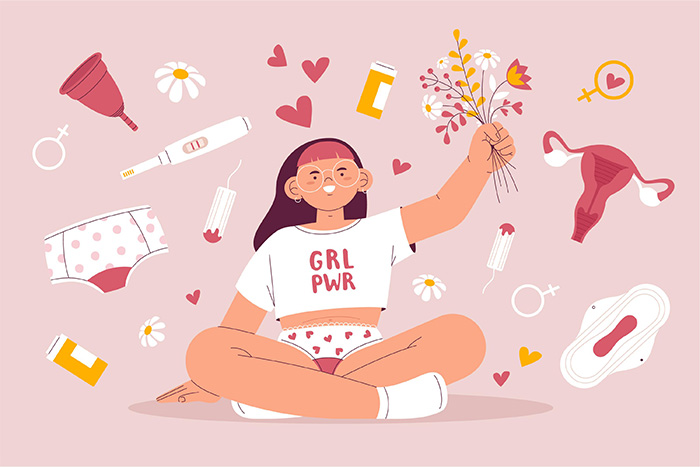No matter how educated or enlightened we might be, talking about periods to young girls can be overwhelming and daunting. In the past, talking about periods was considered taboo, however, we need to overcome these stigmas and prepare little girls before they step into their womanhood. At a young age, it can be confusing for a teenage girl to understand the changes their body is going through and they might feel ashamed or anxious to talk about it openly without proper information. As per the latest research, the menstrual age has come down to 8 years, hence, talking about periods early is important to make them understand the changes they will go through.
During puberty, the children’s body goes through several physical and mental changes. This leads to suppressing their emotions and they may not have anyone to talk about it. Be the first-period guide for your loved ones who are going to have their first period because it might create a panicking situation for them once it begins.
Tips for Teen Moms Before Their Teen’s First Periods
If you are a mom whose teenager is stepping into puberty, and experiencing changes in their body, you must start talking to them about these changes and their first periods. Here are the tips that can help you to talk to them and give them the right information.
- Make them understand what menstruation is, and what is the period of occurrence. Also, let them know your first period experience.
- Talk to them about the signs of first periods, and you must discuss the common signs of periods like abdominal pain, bloating, mood swings, food cravings, spotting, etc.
- Get them familiar with the right menstrual products. Sofy provides the best period pads for the onset of your first period. These sanitary pads come with extra long surfaces made with pure cotton, antibacterial properties, and no leakage.
A school-going girl is likely to experience her first period when is around 12-14 years old. Things can be confusing when you are this young. As a mother, give them comfort and proper care in their first periods.
FAQ’s
2. What are common signs of a girl’s first period?
Common early signs include stomach cramps, bloating, mood swings, food cravings, and light spotting. Mention these clearly to your daughter so she can recognize her body’s signals and feel confident rather than confused.
3. How can I comfortably explain menstruation basics?
Use simple language to explain that a period is a natural monthly event. Share your first-period story to normalize it and ease her fears. Emphasize that it's a normal part of growing up, and she’s not alone in it.
4. What is the typical age for a girl’s first period?
Most girls get their first period between ages 12–14. Remind her that early or later timing—like around ages 10 or even beyond—can still be normal. Being aware helps reduce stress when the time comes.
5. What menstrual products should I keep ready for her first period?
Stock up on beginner-friendly pads made of soft cotton with antibacterial protection and longer length to minimize leaks. Having them ready at home or in her school bag helps her feel prepared and confident.
6. How can I comfort her during her first period?
Offer emotional support by listening without judgment. Reassure her that cramps or mood swings are normal. Also, provide hygiene supplies, pain relief options like heat pads if needed, and ensure she has a comfortable space to rest.
7. How should I address mood swings during her first period?
Explain that mood swings are a common part of periods. Encourage open talk about feelings, offer patience, and create a supportive environment. Knowing it’s temporary can help her manage emotions better.
8. Is talking about your own first-period experience helpful?
Yes, sharing your first-period story helps remove shame or fear, making the topic relatable and less daunting. It can open the door for respectful, honest discussions and strengthen your bond.
9. What should I do if my daughter feels embarrassed?
Encourage her to share her feelings without anger or judgment. Normalize the emotion by reminding her many girls feel the same way at first. Patience and understanding is key to helping her feel safe and accepted.
10. How can I maintain openness after her first period?
Keep the conversation going! Check in regularly about her comfort and any questions she may have. Replace awkwardness with ongoing support—so she sees you as a trusted, approachable guide throughout this new phase.

